
Mexico is approaching 100,000 officially registered missing and unlocated persons, in the midst of a great effort to stop this tragedy and sadly emblematic cases, such as that of the 43 students of Ayotzinapa that occurred in 2014, which, 7 years away, cannot yet be resolved.
For almost 8 years, Gerardo Preciado Torres, who would now be 47 years old, has been wanted by his family after four men identified as agents of the Jalisco Public Prosecutor's Office beat him and deprived him of liberty without an arrest warrant or explanation in between.
That May 22, 2014, life changed for his mother, María Refugio Torres, who had to learn about law, criminology, forensic sciences and psychological support to follow up on the case of her son and that of hundreds more that place Jalisco as the state with the highest number of missing and unidentified persons.
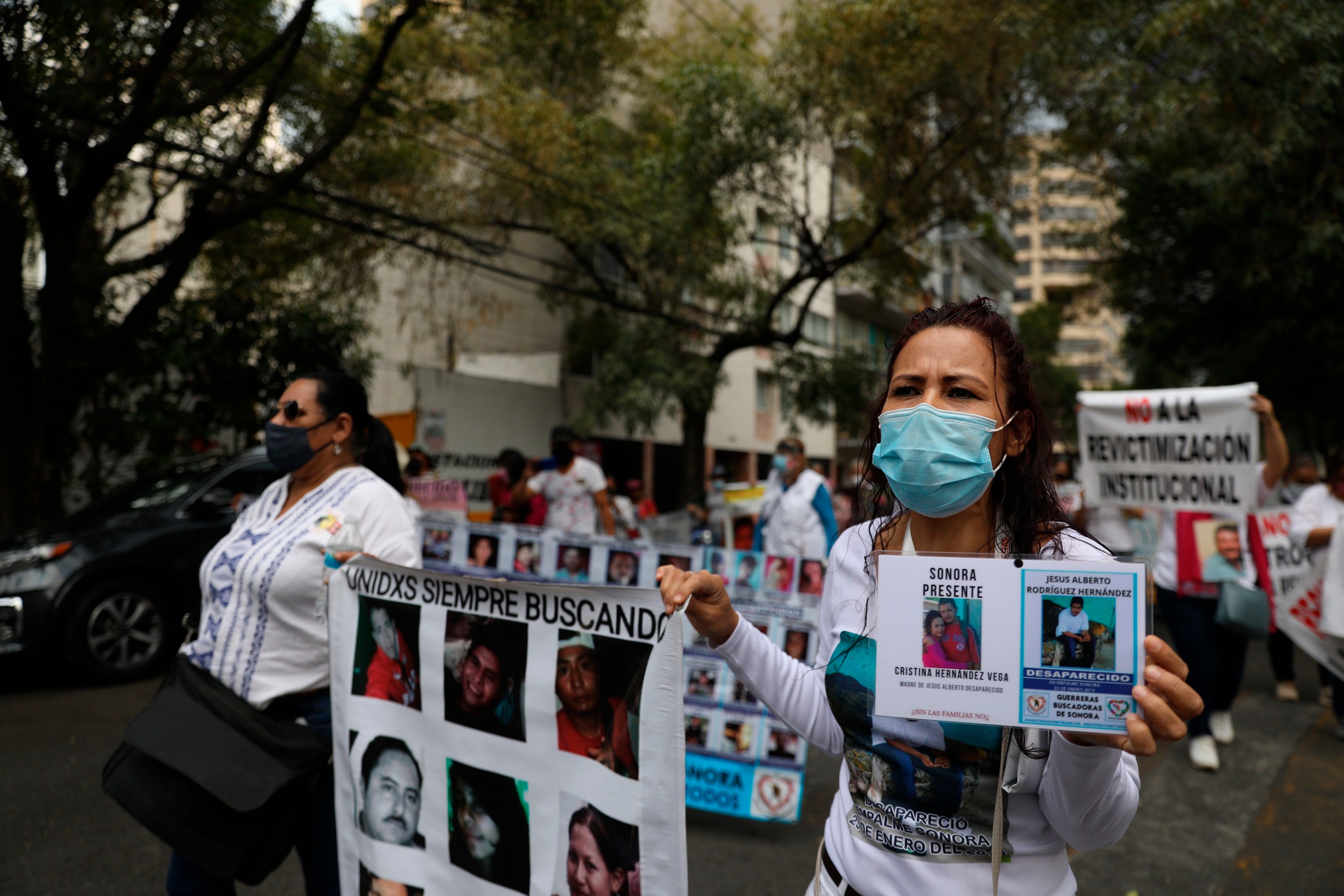
“One is the one who must seek, investigate and bring information to them because they (the authorities) do nothing. When my son disappeared I did trust authority and I said they were going to give him back to me. I was so confident that every third day I went to the prosecution, but they always received me with the same thing: the investigation is ongoing,” Torres told Efe.
Next to the altar he took with photographs and the search form of his son, Torres narrated that he had to learn to defend himself from the omissions and humiliations of the authorities and to search the clandestine graves that abound in this record.
Only the collective to which it belongs, called For Love of Them, has found about 100 people buried.
“Let (your case) serve as an experience for the people who come, because this is never going to end, that what we have been through does not happen because it has been battling with cops and with everything that is called authority,” he said.
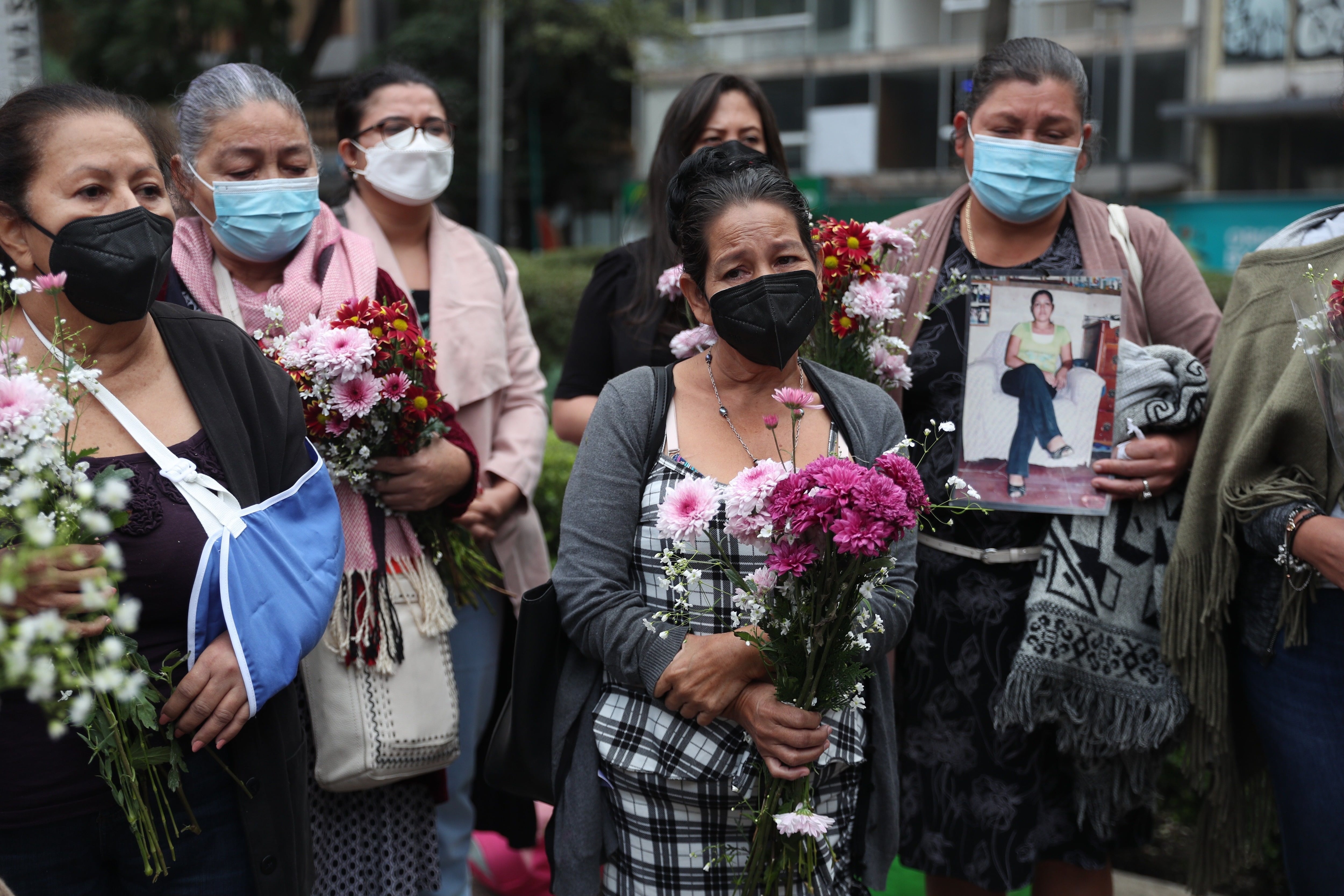
According to the National Registry of Missing or Unlocated Persons, which updates the figures daily, until March 30, 2022, the country had 98,423 people in these circumstances.
In addition, 143,618 persons are missing and subsequently located. So, from 1964 to date, the country has accumulated 242,041 missing persons, both localized and unlocated.
According to data from the National Search Commission (CNB) of the Mexican Ministry of the Interior (Segob), Jalisco is the entity with the highest number of missing and unlocated persons with 14,915 cases, followed by Tamaulipas with 11,916 cases, the State of Mexico with 10,720 and Nuevo León with 6,000 148.
Adriana Carranza, 29, has been looking since October 2021 for her husband Rubén Arreola Marroquín, 32, an employee of the University of Guadalajara.
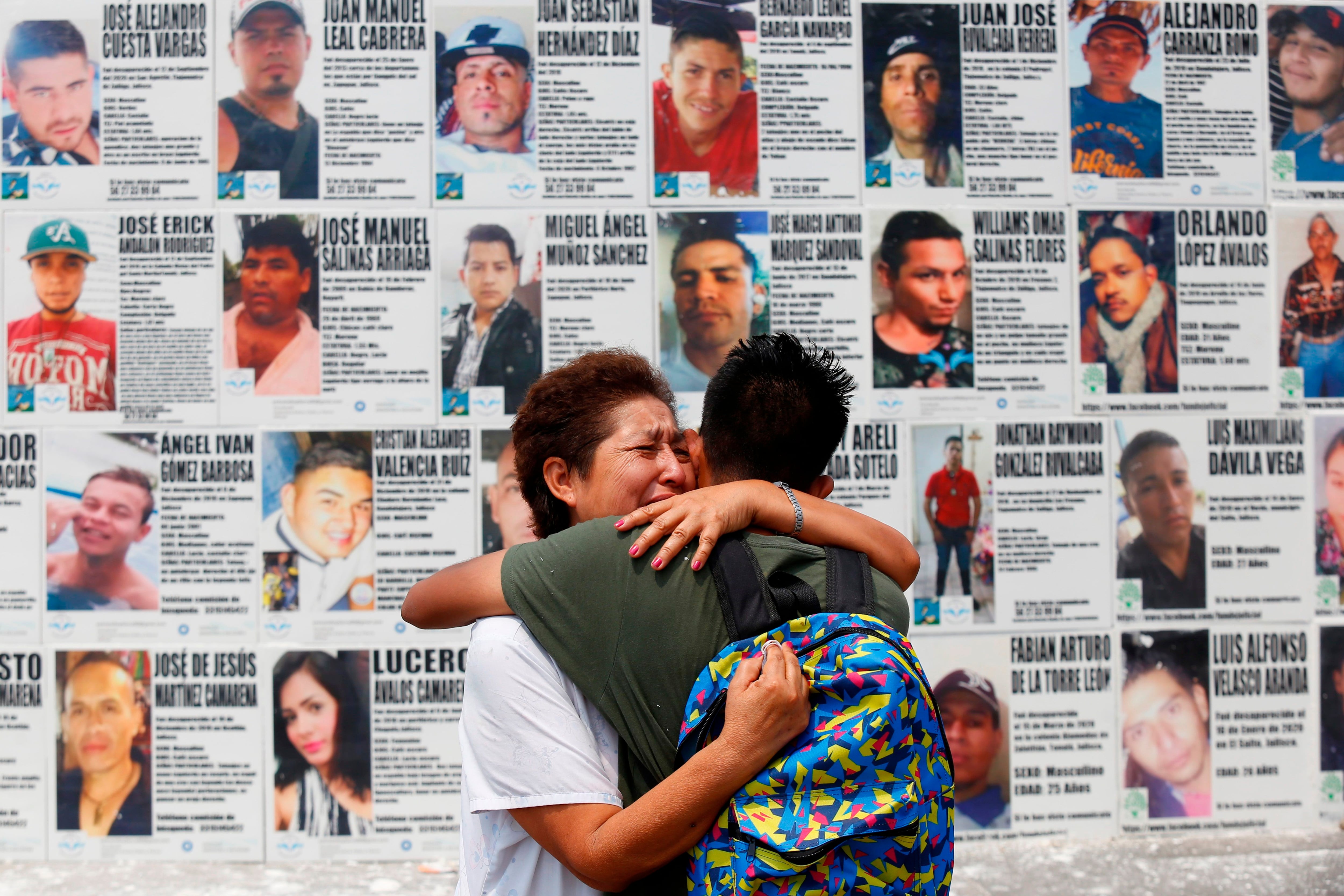
The woman told Efe that she last saw him when she left her house to discuss with a neighbor of the subdivision who had collided with her vehicle.
The neighbor was arrested a few weeks later, but in his only statement he does not give information on the whereabouts of Arreola Marroquín, despite the fact that the family has verified with documents that both mobile phones made the same route from their colony to an abandoned property in the municipality of Tlajomulco, 34 kilometers away.
“The hardest thing is not knowing how he is, if they are doing something to him, if he is okay, if he eats, if they have already done something to him. (...) You make a thousand scenarios yourself and every day they collapse,” says the young woman.

The nearly 100,000 disappeared in Mexico is a much higher figure than the 1,192 disappeared during the dictatorship of Augusto Pinochet in Chile (1973-1990).
According to CNB data, the crisis of missing persons increased since 2006, when then-President Felipe Calderón declared the so-called “war on drug trafficking”, but it reached its peak in 2019, bringing with it problems not only with locating people but with forensic identification of the bodies found.
The country has witnessed sadly emblematic cases such as that of the 43 Ayotzinapa students, who after 7 years have little progress with the remains of only 3 identified students and a senior fugitive official, despite the fact that the search resumed 3 years ago.
In fact, this week, a report by the Interdisciplinary Group of Independent Experts (GIEI) of the Inter-American Commission on Human Rights (IACHR) denounced a simulation in the initial investigation of the case and the concealment of data, and put the Armed Forces in the spotlight after the disclosure of some videos involving seamen.
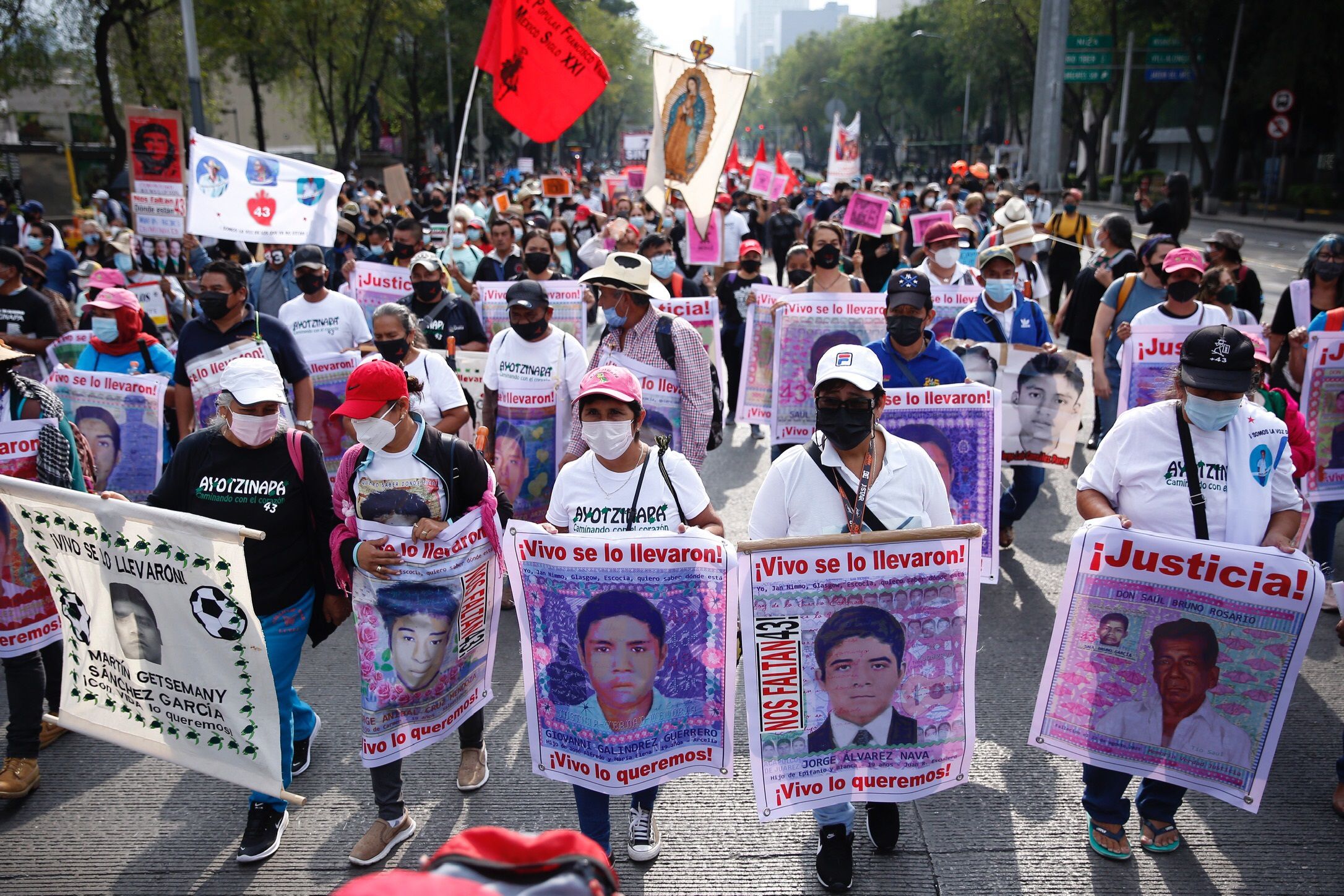
The Undersecretary of Human Rights, Population and Migration of La Segob, Alejandro Encinas, said on March 17 that the 1.7 billion pesos (about 85 million dollars) for the search and advancement in forensic matters have not reduced the 37,000 bodies that are left behind in forensic institutes and clandestine graves that are still without being identified.
The figure could be higher, since according to a record of the Movement for Our Disappeared in Mexico based on requests for information and fieldwork, there would be just over 52,000 unidentified bodies in the forensic services and mass graves.
Denisse Ayala, member of the University Committee for Analysis of the Disappearance of Persons at the University of Guadalajara, told Efe that Mexico is living a “subnational regime” in which institutions, security agencies and laws appear to work, but organized crime manages to penetrate the authorities.
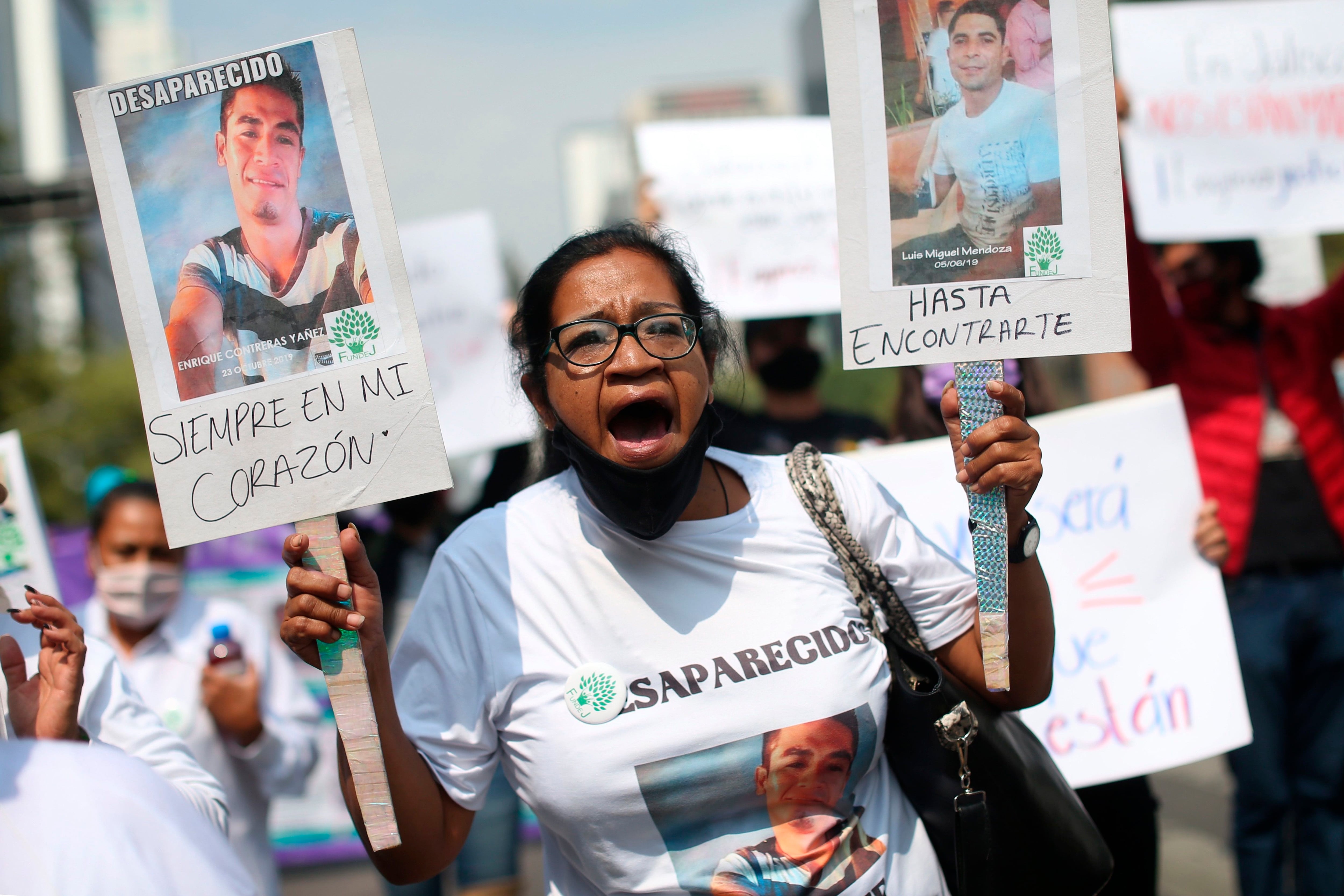
“There is a gray area where organized crime, instances and the state apparatus converge, and they are not separate spheres. There is a cancer called impunity. When you have capacity in the violence you deploy, you do it because you can and because the public safety environment does not work or does it at the discretion of your operations,” he said.
Both Ayala and the committee coordinator, Jorge Ramírez, recalled that the number of unlocated people could be higher because there is an underreporting of cases due to the fact that both families and society in general live in fear of reporting.
“It is a threatened society, it is known that there are security apparatuses taken and public ministries where reporting puts you at risk. What there is is a great fear of society to mobilize,” Ramirez concluded.
With information from EFE
KEEP READING:
Últimas Noticias
Debanhi Escobar: they secured the motel where she was found lifeless in a cistern

The oldest person in the world died at the age of 119

Macabre find in CDMX: they left a body bagged and tied in a taxi
The eagles of America will face Manchester City in a duel of legends. Here are the details

Why is it good to bring dogs out to know the world when they are puppies




